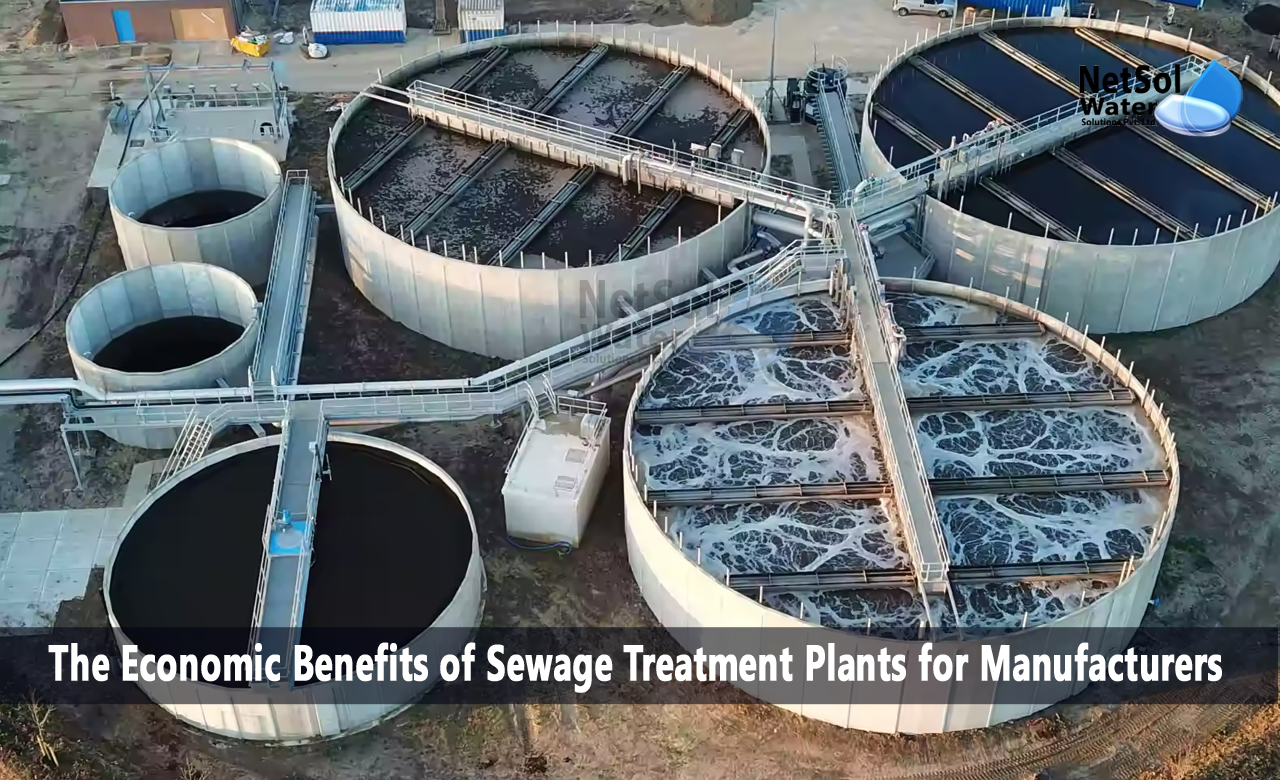The Economic Benefits of Sewage Treatment Plants for Manufacturers
Sewage treatment plants (STPs) play a crucial role in managing wastewater and ensuring a clean and healthy environment. While their primary purpose is to treat and dispose of sewage and other forms of wastewater, these facilities offer significant economic benefits for manufacturers as well. By tapping into the potential of wastewater as a resource, manufacturers can turn waste into worth, making their operations more sustainable, cost-effective, and environmentally friendly.
Resource Recovery:
Sewage treatment plants are designed to remove harmful contaminants from wastewater, but they also provide an opportunity for resource recovery. Wastewater contains valuable resources such as organic matter, nutrients like nitrogen and phosphorus, and even energy. Manufacturers can work in collaboration with STPs to implement advanced treatment technologies that enable the extraction and reuse of these resources.
a. Organic Matter: Wastewater contains high concentrations of organic matter, which can be converted into valuable byproducts like biogas through anaerobic digestion. Biogas, composed primarily of methane, can serve as a renewable energy source for manufacturing processes, reducing reliance on fossil fuels and lowering energy costs.
b. Nutrient Recovery: Nutrients like nitrogen and phosphorus present in wastewater can be recovered and transformed into fertilizers or soil amendments. This closed-loop approach reduces the need for synthetic fertilizers, conserves resources, and decreases the environmental impact of agricultural practices.
Water Conservation:
Water scarcity is a growing concern in many regions around the world. Sewage treatment plants can contribute to water conservation efforts by facilitating the reuse of treated wastewater, also known as reclaimed water or recycled water. Manufacturers can use reclaimed water for non-potable purposes such as cooling, irrigation, or industrial processes. By reducing their reliance on freshwater sources, manufacturers can achieve significant cost savings while alleviating pressure on local water supplies.
Regulatory Compliance and Reputation:
Compliance with environmental regulations is a priority for manufacturers. Sewage treatment plants play a vital role in ensuring compliance by treating industrial wastewater to meet stringent discharge standards. Collaborating with STPs can help manufacturers avoid fines, penalties, and reputational damage associated with non-compliance. By demonstrating a commitment to responsible wastewater management, manufacturers can enhance their reputation as environmentally conscious organizations, attracting environmentally aware customers and investors.
Cost Savings:
Sewage treatment plants offer manufacturers several avenues for cost savings:
a. Reduced Disposal Costs: By treating wastewater on-site or working with local STPs, manufacturers can minimize or eliminate the need for expensive off-site disposal methods. This leads to significant cost reductions associated with transportation, landfill fees, and third-party wastewater treatment services.
b. Energy Generation: Implementing advanced treatment technologies, such as anaerobic digestion, allows manufacturers to generate biogas for their energy needs. This reduces reliance on grid electricity, thereby lowering energy costs and improving overall operational efficiency.
c. Water Efficiency: Reusing treated wastewater for non-potable purposes reduces the demand for freshwater, resulting in cost savings on water procurement and associated utility bills.
Conclusion:
Sewage treatment plants offer manufacturers a wealth of economic benefits by turning waste into worth. Resource recovery, water conservation, regulatory compliance, and cost savings are just a few of the advantages that manufacturers can gain by leveraging STPs. By embracing sustainable wastewater management practices, manufacturers can align their operations with environmental stewardship, strengthen their bottom line, and contribute to a cleaner and more prosperous future for all.



